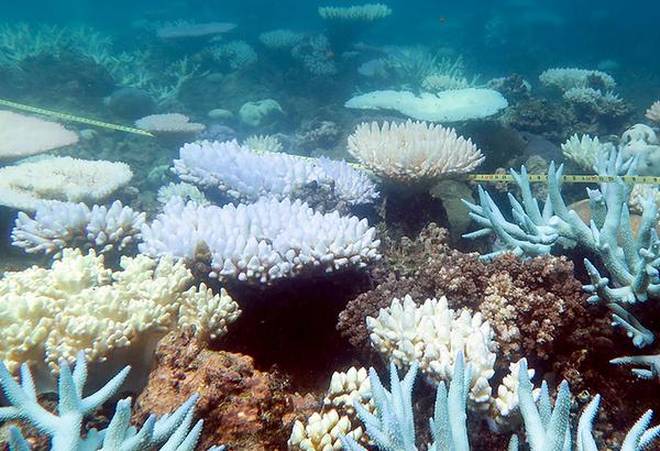Corals on Australia’s famous Great Barrier Reef encountered a calamitous cease to exist following the broadened marine heat wave of 2016, an investigation has found. Scientists from the ARC Center of Excellence for Coral Reef Studies (Coral CoE) in Australia mapped the geological example of warmth presentation from satellites.
They gauged coral survival along the 2,300 kilometer length of the Great Barrier Reef, the world’s biggest reef framework, following the extraordinary marine heat wave of 2016. The investigation distributed in the diary Nature found that 29 for each penny of the 3,863 reefs containing the world’s biggest reef framework lost at least 66% of their corals, changing the capacity of these reefs to support full environmental working.
“At the point when corals dye from a heat wave, they can either survive or recapture their shading gradually as the temperature drops, or they can pass on,” said Terry Hughes from ARC Center of Excellence for Coral Reef Studies (Coral CoE).
The measure of coral passing the analysts estimated was firmly connected to the measure of dying and level of warmth presentation, with the northern third of the Great Barrier Reef being the most seriously influenced.
“As a major aspect of a worldwide warmth and coral blanching occasion crossing 2014-2017, the Great Barrier Reef experienced serious warmth push and fading again in 2017, this time influencing the focal locale of the Great Barrier Reef,” said Mark Eakin of the US National Oceanic and Atmospheric Administration.
“We are currently at a point where we have lost near portion of the corals in shallow-water territories over the northern 66% of the Great Barrier Reef due to consecutive dying more than two continuous years,” said Sean Connolly of Coral CoE at James Cook University.
These discoveries fortify the requirement for surveying the danger of a wide-scale crumple of reef biological systems, particularly if worldwide activity on environmental change neglects to restrain warming to 1.5 to 2 degrees Celsius above pre-mechanical levels.
Is Global Warming Killing The Great Barrier Reef?
The examination is special since it tests the developing system for the International Union for Conservation of Nature (IUCN) Red List of Ecosystems, which tries to order powerless biological systems as ‘sheltered,’ ‘undermined’ or ‘imperiled.’
“The Great Barrier Reef is unquestionably undermined by environmental change, yet it isn’t bound on the off chance that we bargain rapidly with ozone depleting substance outflows. Our investigation demonstrates that coral reefs are as of now moving profoundly because of extraordinary heatwaves,” said Hughes.PTI
Sources: thehindu.com






